10 Faqs About Granite Countertops
March 16, 2020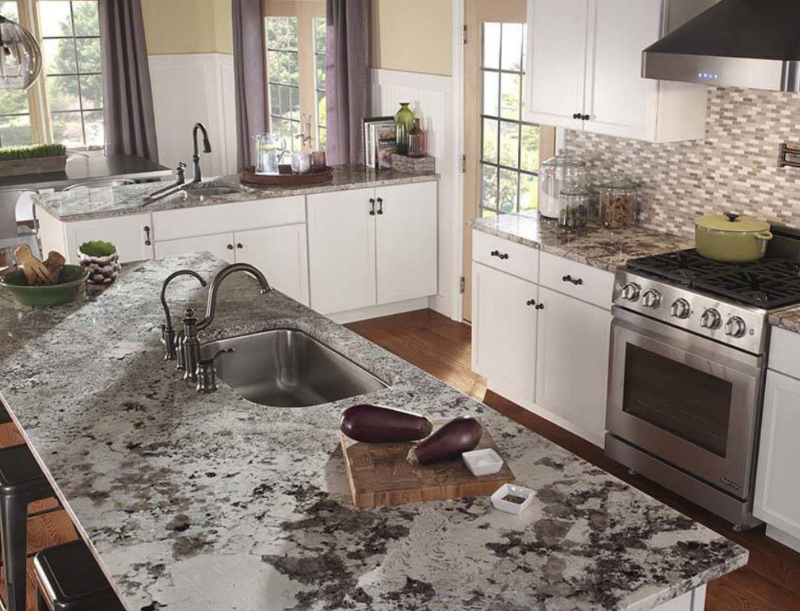
Are you eyeing granite countertops for your new kitchen? This simple addition can transform the heart of your home, adding instant style and sophistication to any space.
Yet, we understand that this is a major investment, and you want to do your homework first.
Before you take the next step, read on. Today, we're answering 10 of our most frequently asked questions about granite countertops. Along the way, we'll dispel myths, correct misconceptions and shed light on why granite is one of our go-to materials for home interiors!
1. Are Cracks a Sign of Weakness or That the Slab Will Break?
This is one of the inquiries that we field most often and the answer is a resounding "no".
Granite is a natural stone comprised of different minerals and rocks including quartz, feldspar, mica, and others. Combined, these create a strong and durable material, although fissures (tiny, hairline separations) can form during initial underground formation.
How does this happen? As these minerals undergo continuous cycles of heating and cooling, the expansion and shrinkage that occurs can cause these natural imperfections to appear in the stone.
However, while they might look similar, fissures are not cracks and will not weaken the stone at all. Cracks are caused by accidents that occur as the granite travels from the quarry to your home, across the handling, fabrication, or transportation stages.
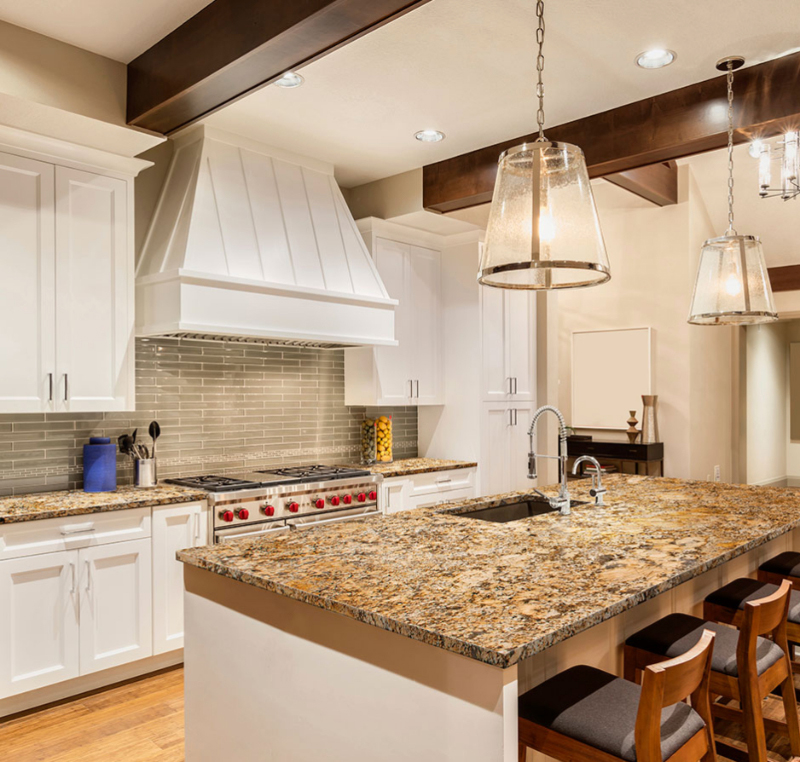
2. If Granite Is So Strong, Does That Mean That It's Safe to Cut Directly on It?
It won't hurt your granite if you cut directly on its surface. However, we don't recommend doing so.
You see, granite is so strong and durable that there's only one mineral strong enough to cut through it: diamond. Unless you're cutting your food with your jewelry, you can't damage the slab itself.
Yet, you can easily damage or dull any knife you use!
In addition, remember that even though granite is really strong, it can still chip or break.
Usually, this occurs as a result of extreme abuse. For instance, if you place an extra-heavy item on your countertop overhang, the pressure alone could result in a break. Granite can also chip if it rubs too forcefully against stationary objects, such as appliances, during the installation process.
3. Is Polished Granite Porous?
One thing to keep in mind? While it's extremely hard, granite is still porous, like many natural stones. This means that although it's technically an impregnable rock, there are tiny holes on the top of its surface where germs can hide.
Thankfully, you can help seal and protect your countertops to keep them sanitary and looking good as new. Use a designated granite cleaner to remove grime and debris from the stone, and seal it at least once every five years to ward off stains and keep it shiny.
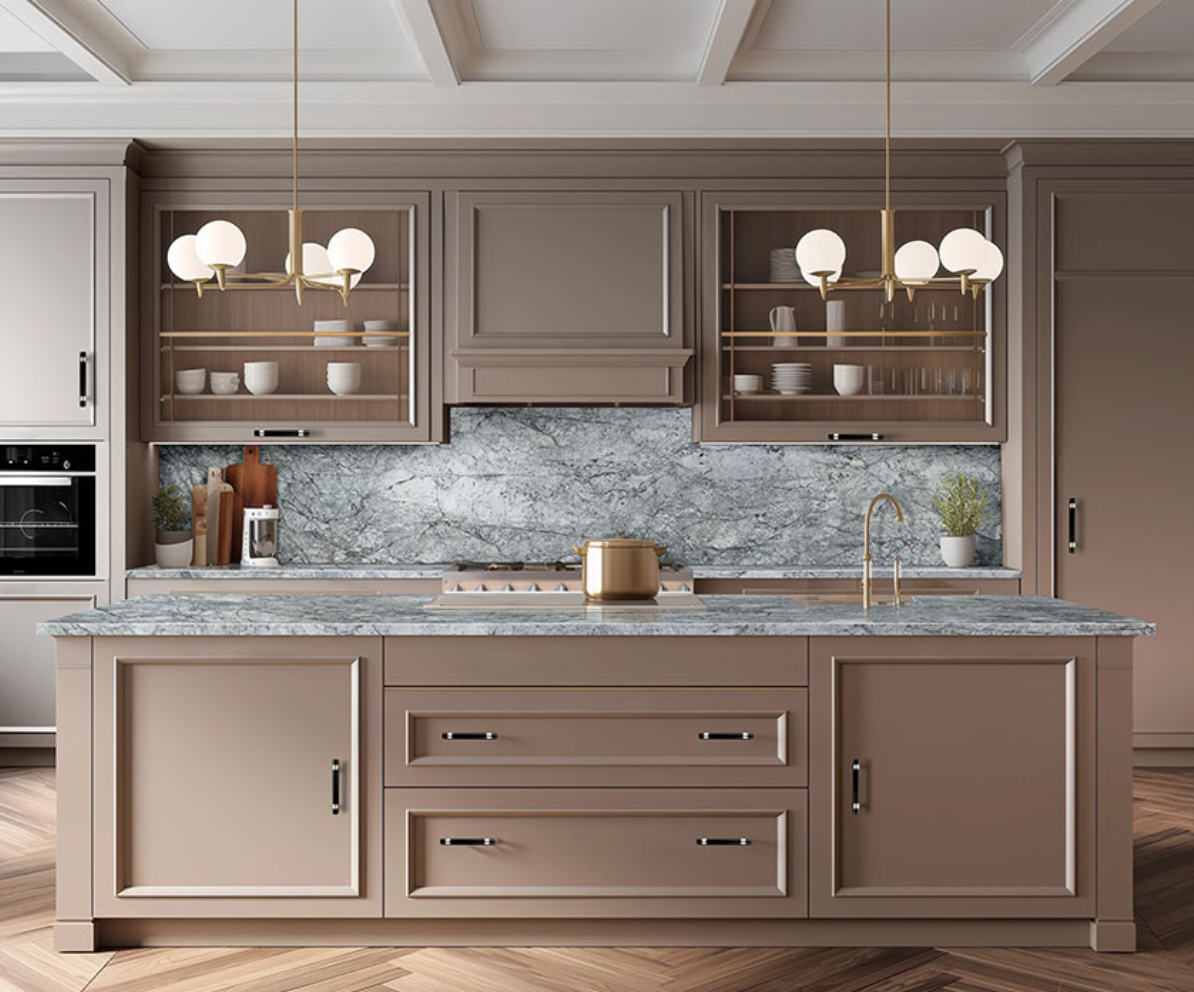
4. What's the Process of Installing a Granite Countertop?
When you work with a professional installation team like ours, the process begins with a digital measure ensure the right dimensions for your space. Once that's complete, it takes five to seven business days for the actual installation. Here are the steps you can expect:
1. Remove existing countertops.
2. Prepare the area for new sinks (if applicable) and countertops.
3. Perform a final preparation/review of the new countertops to ensure quality.
4. Place and install the new countertop.
5. Seal the countertop into place.
6. Perform a final cleaning of the new countertops to ensure no residue remains from the installation process.
7. Perform a final preparation of the countertop for the plumber to install new faucets.
8. Perform a final inspection to ensure all aspects of the installation were completed properly.
5. Can Granite Be Scorched?
Your kitchen is full of hot tools and appliances. That said, can you scorch your new countertops? Not if you follow proper precautions and take care not to leave scalding hot items on the stone for too long. It's generally safe to briefly set a hot pot or pan directly on top of your countertops without fear of damaging them.
Still, it's always smart to use a trivet or hot pad, regardless of the material you choose. Why? Though granite is a naturally heat-resistant stone, sealants and finishes are more susceptible to heat damage.
If you repeatedly leave hot items on your counter, it can create black marks on the surface. Or, it could lead to thermal shock and cracks. Extreme heat can even wear through the sealant itself, making the granite more vulnerable to stains and acid damage.
6. Are There Granites That Look Like Marble?
Marble can be a beautiful material, adding a clean and fresh look to your interior. However, it's not a match for granite. In other words, you won't be able to find granite that looks and behaves exactly like marble. For many reasons, that's a good thing!
At their core, granite and marble have very different compositions. You'll first notice that granite has more of a flecked, granular appearance, whereas marble is defined by oversized veins. In addition, although both materials are gorgeous natural stones, granite offers a few benefits over marble, including:
• Harder
• More durable
• More heat-resistant
• Less likely to scuff or discolor
• Less likely to scratch
• Less porous
While marble is a beautiful choice for low-traffic areas such as fireplace surrounds, it may lack the durability required to hold up under the wear and tear of everyday kitchen use.
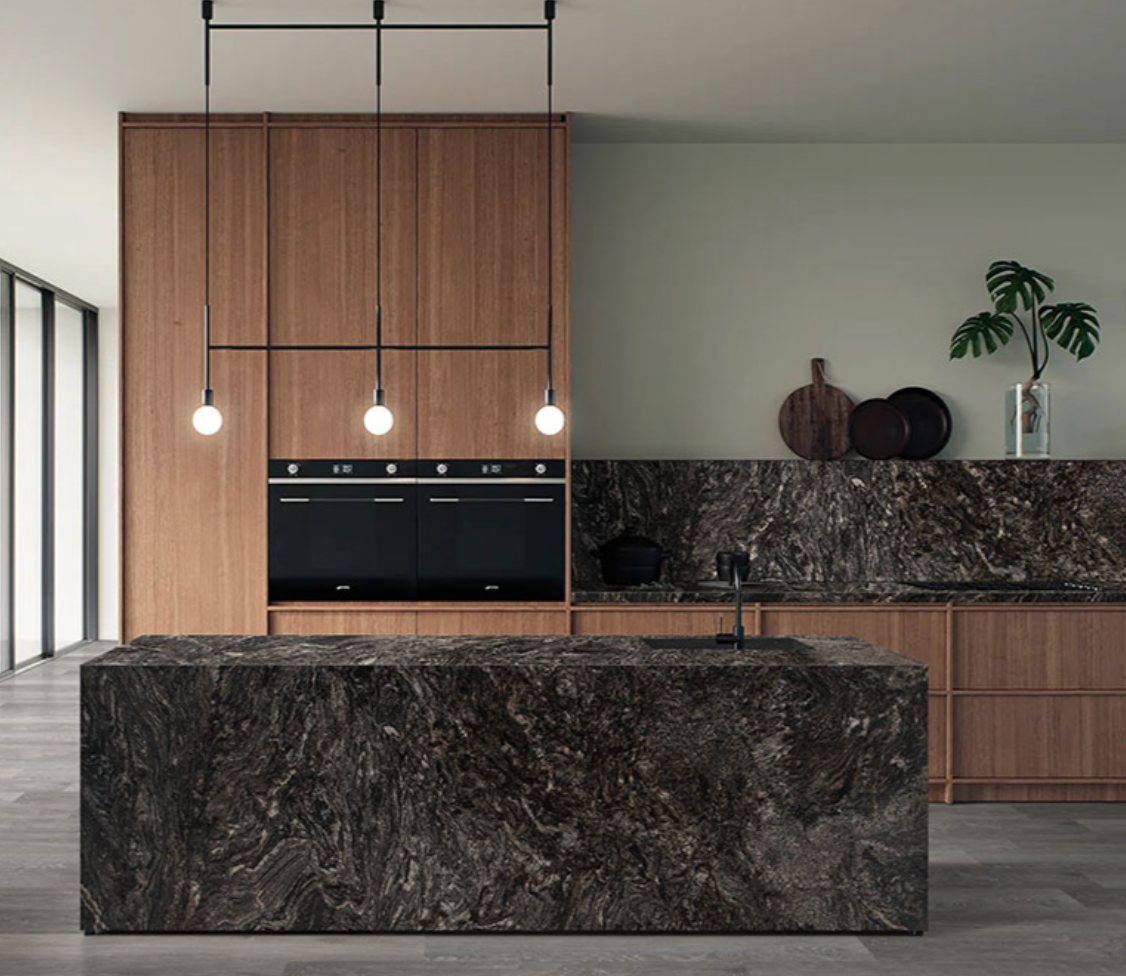
7. Is Granite a Good Value for the Money?
Yes! Granite is an excellent pick when you're ready to add both practicality and resale value to your home. This one-time investment can last a lifetime, able to be moved and reused if you decide to remodel or upgrade down the road. You can even find many different variations on the market, ranging from white granite to black granite, making it a versatile and flexible addition to your home.
Compared to other premium surfaces, it's also one of the more economical options on the market, delivering an impressive ROI you'll appreciate for years.
8. Is There a Difference Between Granite and Quartz?
Both granite and quartz make excellent countertop materials. However, they are not the same.
The main difference in the quartz vs. granite debate is that quartz is a man-made, engineered material, while granite comes right out of the earth. This means they look and behave quite differently, although you can find some quartz variations that resemble granite.
This article digs into the differences between the two. In terms of quartz vs. granite, the two vary by many factors, including:
• Composition
• Cost
• Appearance
• Maintenance
• Durability
We offer both quartz and granite countertops and would love to help you make a selection for your home!
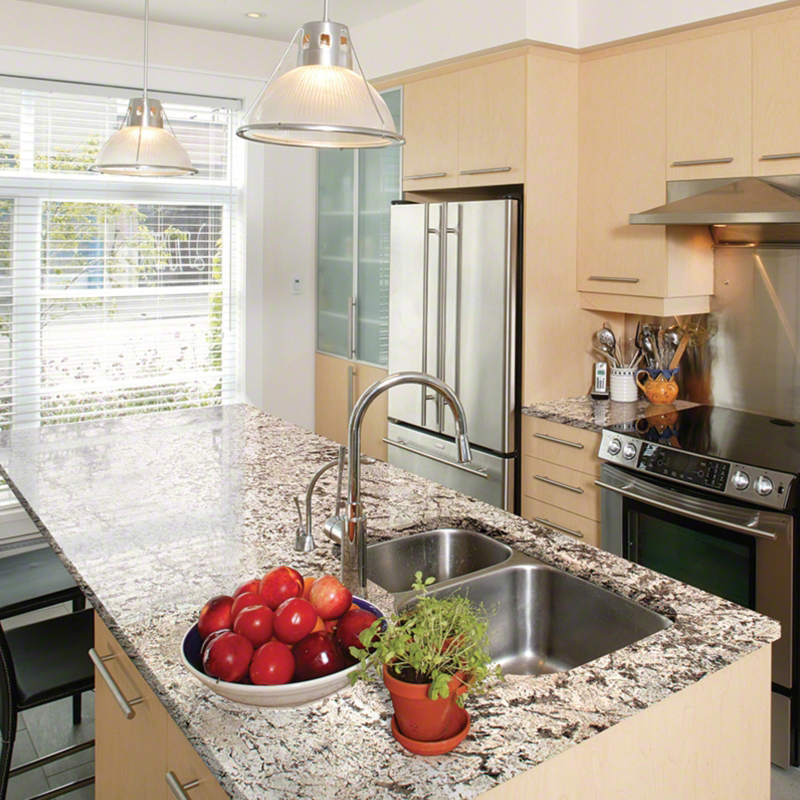
9. What Do I Need to Know About Radon?
As a conscious homeowner, you naturally want to keep your loved ones as safe as possible. That's why you might worry that your new granite countertop could emit radon.
So, we're here to set the story straight and set your mind at ease.
As a natural stone, granite can contain naturally-occurring radioactive elements, including radium, thorium, and uranium, among others. While these elements begin as solids, they can decay into radon over time.
However, keep in mind that granite isn't very porous. In addition, you aren't installing a huge amount of it in your home, no matter how big your island might be! That means that any radon present is unlikely to escape in a large enough quantity to negatively affect your health.
If you want more information, this link explains the issue in greater detail.
10. Where Does Granite Come From?
Finally, where will your beautiful new granite countertop come from?
Raw granite materials are mined from the earth in places called quarries. While Italy and Brazil have some of the most prolific quarries, there are sites all over the world. To see exactly where your slab originates, you can check the country of origin on the MSI site!
As raw granite is very rough, it has to be processed once it's mined. A technician will use a special milling machine to cut and polish the granite to a shine! When that process is finished, final slabs are usually around seven to nine feet long. Once you choose a slab for your project, a fabrication specialist can cut it to size!
Browse Our Granite Countertops Today
Now you know a little more about where granite comes from, how it works, and what sets it apart from other surface materials. With this information in hand, are you ready to take the next step in your kitchen or bath project? If so, we're here to help.
We offer a vast selection of granite countertops to choose from and we'd love to help you pick the perfect one. Contact us today to learn more and get started!
Read More about Granite Countertops
Achieve Professional Results on Your Granite Countertop Install
Choose the Perfect Granite Countertops With MSIs Virtual Visualizer
You Can't Go Wrong With These Granite Countertop Designs
Our virtual tools are here for you - help with granite slabs and more!
READ MORE ABOUT GRANITE COUNTERTOPS
Quartz Vs. Granite for Countertops
Granite vs. Quartz for Countertops
Which Is More Expensive – Granite or Quartz?
